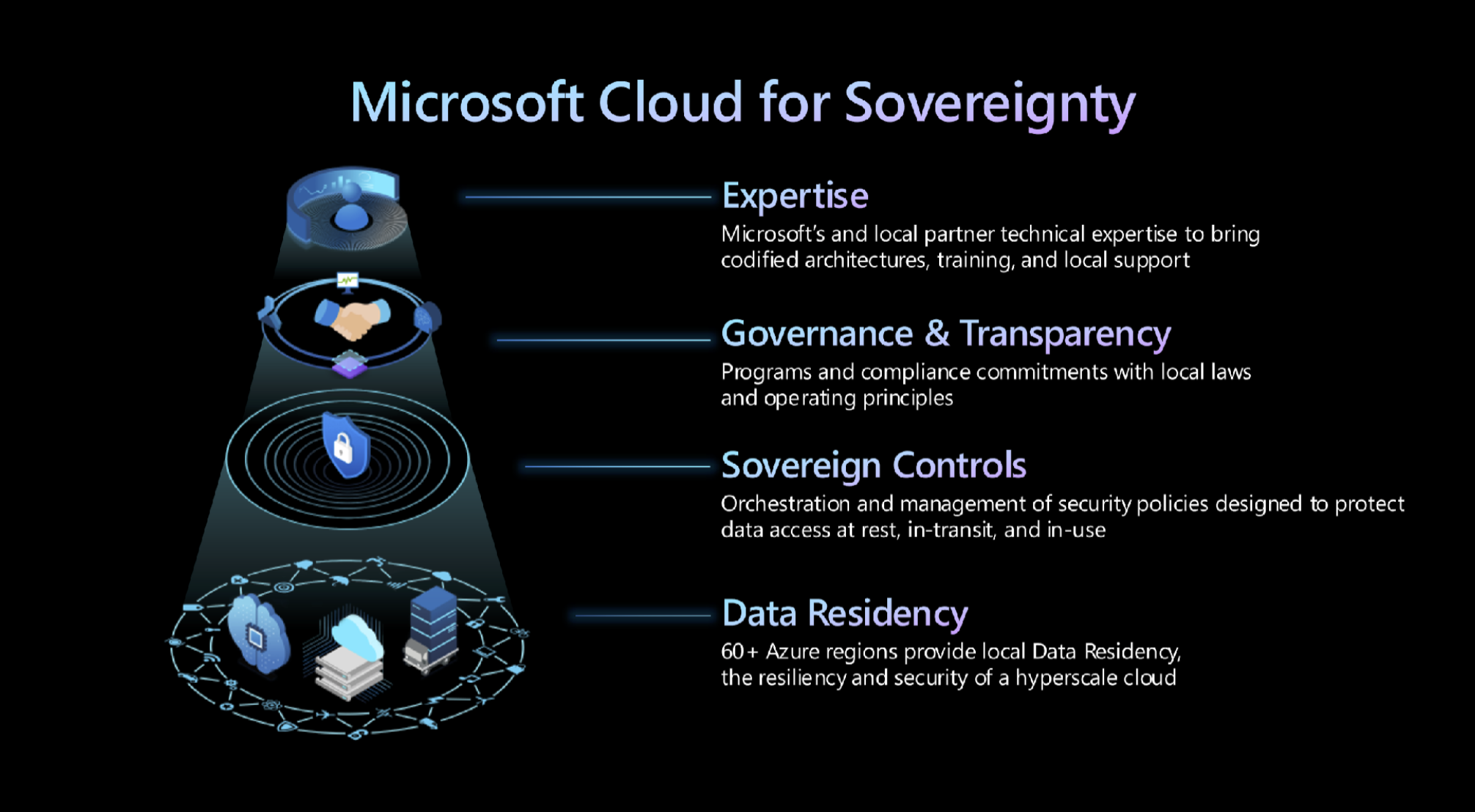At its Inspire conference, Microsoft today announced the launch of the Microsoft Cloud for Sovereignty, a new solution for public sector customers — especially in Europe — who need to be able to guarantee that their users’ data is stored and processed in a given region.
“Today, public sector customers can harness the full power of Microsoft Cloud, including broad platform capabilities, resiliency, agility and security,” the company explains in today’s announcement. “With the addition of Microsoft Cloud for Sovereignty, they will have greater control over their data and increased transparency to the operational and governance processes of the cloud.”

Image Credits: Microsoft
Users will be able to run their workloads in any of Azure’s more than 60 data center regions and access all of the standard Microsoft Cloud services (think Microsoft 365, Dynamics 365 and the Azure platform) and then enable residency options for all of these to meet their regulatory requirements. The company will also offer a ‘Sovereign Landing Zone’ to recommend and enforce compliance options using the same infrastructure-as-code and policy-as-code features are its Azure Landing Zone. This, the company argues, will make it easier for its public sector customers to get up and running, yet also give them the flexibility to tailor these policies to their needs.
The other major cloud providers, of course, also offer their own systems for ensuring compliance with data sovereignty regulations. Google recently announced its Sovereign Controls for its Workspace product, for example, while AWS offers all the primitives to build these features but also bets on its network of third-party vendors and consultants to enable these capabilities for its customers. Few, however, have put the same emphasis on data governance as Azure, which may just pay off in its quest to bring more lucrative public sector customers on board.
[ad_2]
Source

